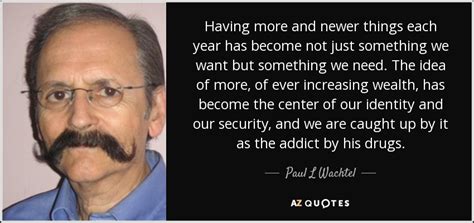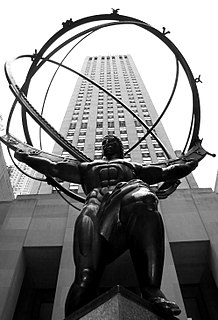A Quote by Sergei Lukyanenko
There is no abstract Evil; you have to understand that! Its roots are here, all around us, in this herd that goes on chewing and having a good time only an hour after a murder!
Related Quotes
There is no abstract Evil; you have to understand that! Its roots are here, all around us, in this herd that goes on chewing and having a good time only an hour after a murder! That's what you have to fight for. For people. Evil is a hydra with many heads, and the more of them you cut off, the more it grows! Hydras have to be starved to death, do you understand that? Kill a hundred Dark Ones, and a thousand more will take their place.
We are faced with having to learn again about interdependency and the need for rootedness after several centuries of having systematically-and proudly-dismantled our roots, ties, and traditions. We had grown so tall we thought we could afford to cut the roots that held us down, only to discover that the tallest trees need the most elaborate roots of all.
For the first time in history, the rational and the good are fully armed in the battle against evil. Here we finally find the answer to our paradox; now we can understand the nature of the social power held by evil. Ultimately, the evil, the irrational, truly has no power. The evil men’s control of morality is transient; it lives on borrowed time made possible only by the errors of the good. In time, as more honest men grasp the truth, evil’s stranglehold will be easily broken.
Violence never really deals with the basic evil of the situation. Violence may murder the murderer, but it doesn’t murder murder. Violence may murder the liar, but it doesn’t murder lie; it doesn’t establish truth. Violence may even murder the dishonest man, but it doesn’t murder dishonesty. Violence may go to the point of murdering the hater, but it doesn’t murder hate. It may increase hate. It is always a descending spiral leading nowhere. This is the ultimate weakness of violence: It multiplies evil and violence in the universe. It doesn’t solve any problems.
Consider a tree for a moment. As beautiful as trees are to look at, we don't see what goes on underground - as they grow roots. Trees must develop deep roots in order to grow strong and produce their beauty. But we don't see the roots. We just see and enjoy the beauty. In much the same way, what goes on inside of us is like the roots of a tree.
I actually worry that we're so mindlessly following the herd on privacy and data being the principle concerns when the actual things that are affecting the felt sense of your life and where your time goes, where your attention goes, where democracy goes, where teen mental health goes, where outrage goes.
We may, indeed, say that the hour of death is uncertain, but when we say this we think of that hour as situated in a vague and remote expanse of time; it does not occur to us that it can have any connexion with the day that has already dawned and can mean that death -- or its first assault and partial possession of us, after which it will never leave hold of us again -- may occur this very afternoon, so far from uncertain, this afternoon whose time-table, hour by hour, has been settled in advance.
We all like to think that the line between good and evil is impermeable--that people who do terrible things, such as commit murder, treason, or kidnapping, are on the evil side of this line, and the rest of us could never cross it. But the Stanford Prison Experiment and the Milgram studies revealed the permeability of that line. Some people are on the good side only because situations have never coerced or seduced them to cross over.
When one has once accepted and absorbed Evil, it no longer demands the unfitness of the means. The ulterior motives with which youabsorb and assimilate Evil are not your own but those of Evil.... Evil is whatever distracts. Evil knows of the Good, but Good does not know of Evil. Knowledge of oneself is something only Evil has. One means that Evil has is the dialogue.... One cannot pay Evil in installments--and one always keeps on trying to.
There's always the same amount of good luck and bad luck in the world. If one person doesn't get the bad luck, somebody else will have to get it in their place. There's always the same amount of good and evil, too. We can't eradicate evil, we can only evict it, force it to move across town. And when evil moves, some good always goes with it. But we can never alter the ratio of good to evil. All we can do is keep things stirred up so neither good nor evil solidifies. That's when things get scary. Life is like a stew, you have to stir it frequently, or all the scum rises to the top.

































